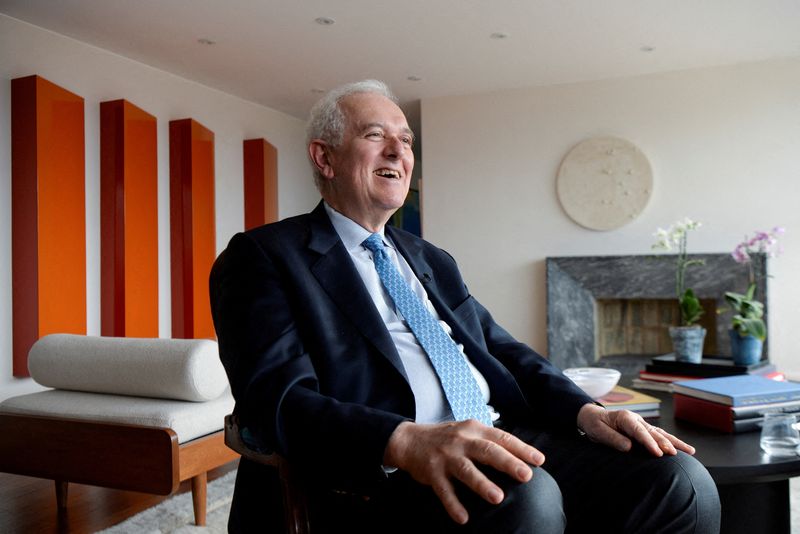By Nelson Bocanegra
CARTAGENA (Reuters) - Colombia will prioritize the diversification of its exports to reduce its dependence on oil, gas and mining and combat its high trade deficit, its new Finance Minister Jose Antonio Ocampo said on Thursday.
The administration of leftist President Gustavo Petro, who took office on Sunday, has already proposed a tax reform set to raise 25 trillion pesos, some $5.8 billion, for social programs in 2023 - partly through increased duties on oil and coal exports - and is backing a bill to ban fracking for hydrocarbons.
Ocampo, speaking at the Colombian Business Association's annual conference, said he is open to changes to the tax bill but will not modify the amount being sought, which will also help reduce a fiscal deficit of some 80 trillion pesos.
Colombia accumulated a nearly $6.5 billion trade balance deficit between January and May, up 20.5% on the same period a year earlier.
The trade balance is the top reason for a wide current account deficit, which doubled last year to $17.8 billion, equivalent to 5.7% of gross domestic product. The central bank estimates that deficit will fall to 5.1% of GDP this year.
"The issue of exports is the number one priority for the government in terms of productive development," Ocampo said during his presentation at the conference.
"The commercial deficit has deteriorated, it's a serious problem," he added. "We continue to depend a lot on oil and coal as exports and we need to radically diversify, it's an important challenge."
Exports of oil and coal reached $15.6 billion during the first half of the year and accounted for 54.5% of the country's exports.
Business groups have said the reform, which would raise duties on companies by 12 trillion pesos ($2.8 billion), could hurt investment.

"All these issues we can debate and analyze if there are better solutions, but the alternative is not to reduce the amount," Ocampo said. "That alternative doesn't exist."
($1 = 4,273.82 pesos)